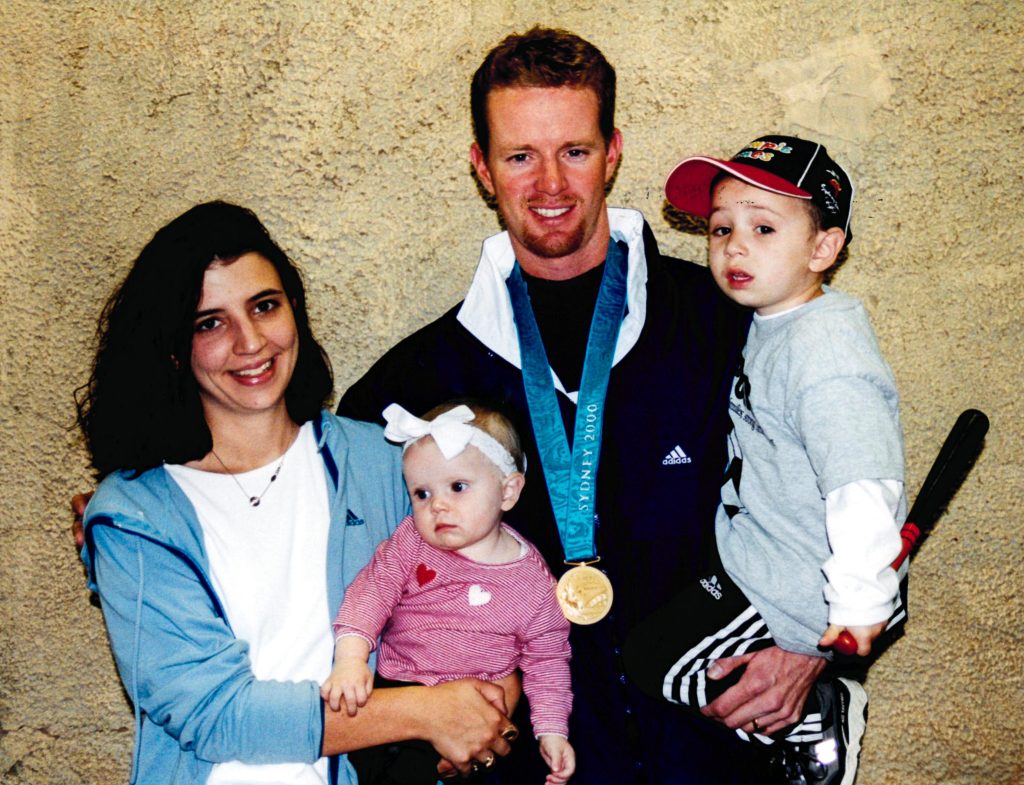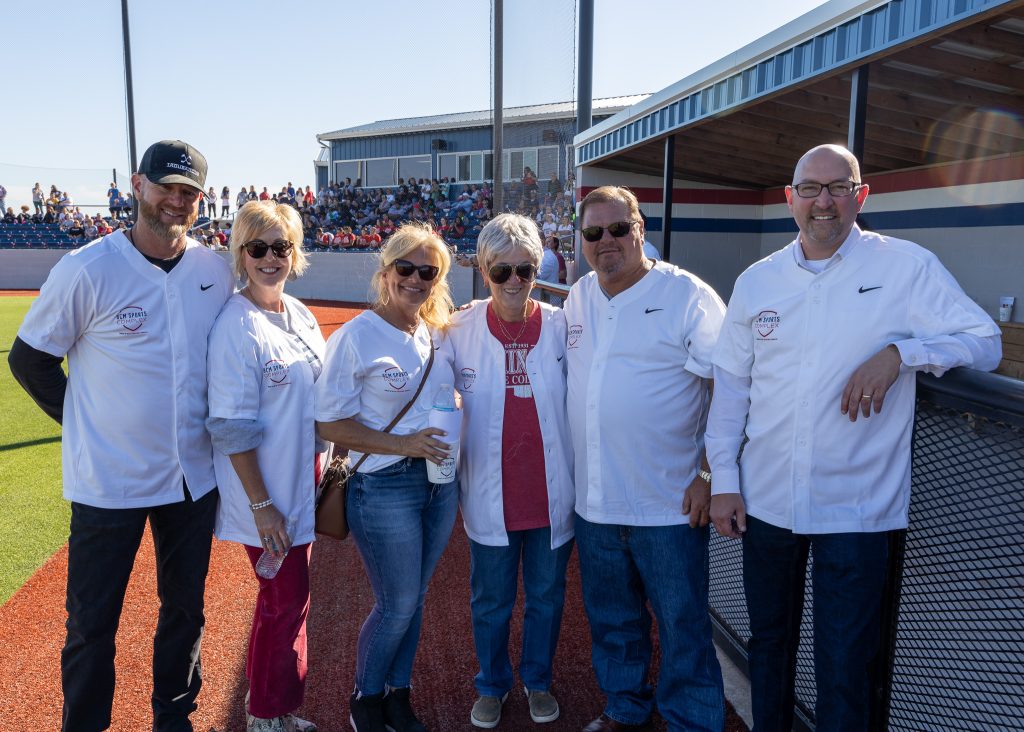As the 2024 Olympics in Paris continue through Aug. 11, viewers around the world tune in as the best athletes in the world compete in a wide range of sports. From rhythmic gymnastics to Greco-Roman wrestling, from fencing to equestrian dressage, it would be easy to assume the most popular sports suited for the summer months are all represented.
“One sport is painfully missing,” Seminole State College Regent Ryan Franklin said. “America’s pastime. Baseball.”
For Franklin, the omission is personal. After graduating from Spiro High School in 1991, Franklin attended what was then Seminole Junior College, where, as a pitcher, he went 20-0 across two seasons. He was then signed by the Seattle Mariners. He spent the next few years building a reputation as a reliable closing pitcher in the minor leagues, eventually leading to an opportunity to try out for the United States’ 2000 Olympic baseball team.
Baseball’s Inconsistent Olympic Journey
Baseball has a long, albeit uneven, relationship with the Olympics. It made its unofficial debut in the 1900 Summer Olympics in Paris, the same city hosting this year’s games. By 1912, baseball was introduced as a demonstration sport in Stockholm, aiming to promote the game rather than compete for medals. It wasn’t until the 1992 Olympics in Barcelona that baseball became a medal sport, remaining part of the program through 2008. The sport was then excluded until its return in Tokyo in 2020. The primary reason for its exclusion in Paris for this year’s games is the host country’s prerogative to introduce sports that are more popular locally. The lack of a strong baseball culture in France, coupled with the absence of suitable infrastructure and venues for the sport, contributed to the decision.
A Pivotal Decision
In 2000, Franklin had a decision of his own to make. The Seattle Mariners gave him a choice: he could leave Triple-A baseball and join the majors or try out for the Olympic team. He had to consider the well-being of his young family. At this time, he was away from his wife Angie and their three-year-old son, Logan, five months out of the year, making around $2,700 a month in the minor leagues.
“That’s before taxes,” Franklin said. “I was feeling the pressure. The goal was always to provide a good life for my family and to do it playing the sport I loved.”

The MLB schedule overlapped with the summer games. No MLB players were available to compete on the USA Baseball team. So, USA Baseball spent months recruiting prospects comprised of minor league players and journeymen.
“Ultimately, it was an easy decision for me to make,” Franklin said. “I never thought I’d have the opportunity to compete at an international level. I felt confident that following the Olympics I would come back, have a strong showing in spring training and secure my spot in the majors the following year.”
Franklin boarded a flight and made his way to Australia. For two weeks, alongside dozens of prospective USA Baseball players, he played in exhibition matches in Queensland. He made the final cut of 30 players and would soon be on his way to compete in Sydney.
The Olympic Tournament
The main tournament featured eight teams selected from a series of continental qualifying tournaments. The teams met in a round-robin series, facing each other once. The countries represented were Australia, Cuba, Italy, Japan, Netherlands, South Africa, South Korea and the United States.
In their first game, the United States faced Japan. The game was tied 2-2 at the close of the ninth inning. Franklin took over the mound for Team USA and threw four shut-out innings and recorded four strikeouts, picking up the win in relief.
During the round-robin series, Team USA lost only one game. The loss came at the hands of Cuba, Olympic gold winners in both 1992 and 1996. In fact, Team Cuba was on a winning streak of 152 games coming into the Sydney Olympics. The team hadn’t lost a game since 1997.
“I know the Cubans were the heavy favorites,” Tommy Lasorda, Team USA Manager and Hall of Fame Manager for the Dodgers, said in an interview with MLB.com in 2020. “When I got the [USA] team, I didn’t know any of them. A bunch of guys nobody had heard of. But they were a bunch of great guys.”
The world would soon get to know Team USA. The team would enter the knockout round of the tournament alongside Cuba, South Korea and Japan. Throughout the tournament play, Franklin pitched three games. He went 3-0 and not a single hit was recorded against him.
“The key to winning in baseball is always pitching and defense,” Franklin said.
The Gold Medal Game
After a 3-2 win over South Korea in the semi-finals, the United States faced Cuba in the gold medal game on Sept. 27 in front of a crowd of more than 14,000 at the Sydney Baseball Stadium and television screens across 220 different countries.
The game opened with Team USA outfielder Mike Neil’s solo home run, which set the tone. Pitcher Ben Sheets maintained the momentum with a shutout against the formidable Cuban lineup. The United States would win the game with a final score of 4-0, ending Cuba’s dominance in Olympic baseball. The game is often referred to as the “Miracle on Grass,” a play on “Miracle on Ice,” the United States’ hockey victory over the Soviet Union at the 1980 Winter Olympics.
For Franklin, life changed quickly after achieving Olympic gold.
“It was definitely a catalyst for my career,” Franklin said.
While the International Olympic Committee does not provide monetary rewards, the United States Olympic Committee does provide monetary support to honor the achievements of medalists. Franklin received $25,000 for earning a gold medal, more money than he had made in an entire season in the minor leagues.
Just as he had envisioned, Franklin performed well in spring training and won a job in the Mariners’ bullpen. He would appear in 38 games that season. Franklin would go on to play in the MLB for a total of 12 seasons.
“It took hard work, dedication. I never gave up on my dreams. There wasn’t a backup plan. I didn’t know what I was going to do if I didn’t make it in the majors,” Franklin said.
Giving Back to SSC
Shortly after his retirement from baseball in 2011, Franklin was appointed to the SSC Board of Regents in 2014 by Gov. Mary Fallin. He was reappointed in 2021 by Gov. Kevin Stitt for a second seven-year term.

Franklin remains connected to the SSC baseball team. He volunteers his time, imparting the knowledge he gleaned during his career to current players.
Looking Ahead to 2028
This year, as the Paris Olympics kicked off, he dusted off his gold medal, showed it to his four-year-old grandson and told him the story of the “Miracle on Grass.” With any luck, he and his grandson will be watching America’s pastime reclaim its place at the 2028 Olympics in Los Angeles.